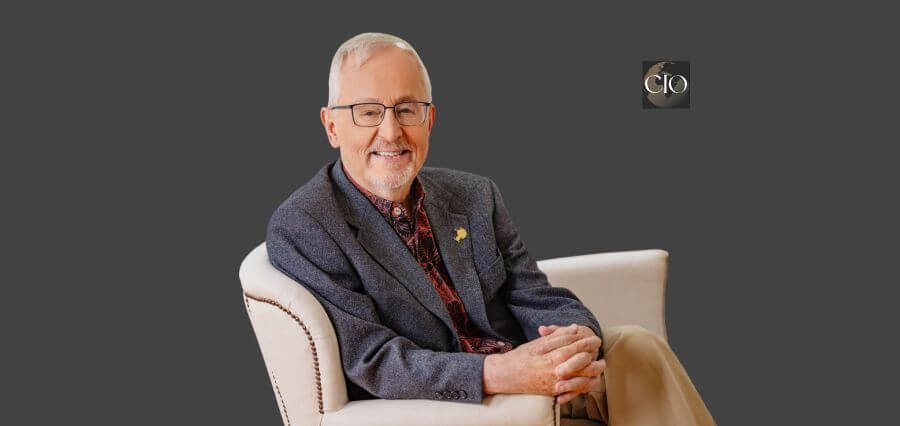Education is more than the accumulation of facts—it’s the cornerstone of human development and societal progress. As the world evolves with rapid technological and social transformations, the need for visionary educators who can transcend academic silos and redefine traditional learning paradigms becomes even more essential. One such exemplary figure is Professor Richard Larson, whose remarkable life and 55-year career at the Massachusetts Institute of Technology (MIT) stand as a testament to the power of education, mentorship, and relentless pursuit of intellectual and societal advancement.
Richard Larson’s journey is not only that of a revered professor but also that of a change-maker who used the platform of academia to influence thousands of lives. From co-authoring books to leading research initiatives on pandemic responses and educational reforms, Larson has continually proven that teaching is not confined to the classroom—it is a calling, a legacy, and above all, a responsibility. His work spans across disciplines, institutions, and generations, echoing the belief that education is one of the greatest investments an individual or society can make.
This comprehensive account of Professor Larson’s journey reveals not just his professional accomplishments but his unwavering dedication to transforming lives through knowledge. It highlights his philosophies, achievements, and the timeless lessons he continues to impart as a mentor and educator par excellence.
Early Life: Humble Beginnings, Towering Aspirations
Professor Richard Larson was born in 1943 in Bayside, Queens, New York City. At a young age, his family relocated to Pennsylvania, and later, he moved to North Plainfield, New Jersey. These early transitions exposed him to different cultures and communities, helping him develop a broader worldview—a trait that would later serve him well in academia.
Larson completed his schooling at Needham High School in Massachusetts, a town known for its beautiful landscapes and academic rigor. His academic brilliance eventually earned him admission into the Massachusetts Institute of Technology (MIT), where he completed his Bachelor’s, Master’s, and Ph.D. in Electrical Engineering. Despite receiving the acceptance letter from MIT, Richard initially believed it was a mistake—a reflection of his humility even in the face of monumental achievement. MIT staff reassured him, explaining it was not uncommon for talented students to doubt their worth, a phenomenon humorously referred to as the “Groucho Marx Syndrome.”
Academic Preferences: Exploring Beyond the Ordinary
From an early age, Larson exhibited a deep curiosity for the sciences, particularly physics, which he found engaging and methodical. While he found biology challenging due to its memorization-heavy content, and chemistry somewhat dull, physics provided the logical consistency he thrived in. However, rather than becoming a traditional physicist, he preferred a career that allowed intellectual flexibility and interdisciplinary exploration.
Throughout his academic life, Richard Larson gravitated toward complex problem-solving and systems thinking. His early interests laid the foundation for his career in operations research (OR), a field he would come to define and expand over the next five decades.
MIT Years: A Professor Across Disciplines
During his tenure at MIT, Professor Larson served in various academic departments, including Electrical Engineering, Urban Studies, and MIT’s Institute for Data, Systems, and Society (IDSS). His interdisciplinary teaching approach was rooted in the belief that academic silos hinder innovation. By bridging disciplines, Larson exposed students to a more holistic form of learning that prepared them for real-world complexities.
He took pride in teaching subjects across five different home academic departments—a testament to both his expertise and his flexibility as an educator. Larson consistently maintained that education should be engaging, and his classroom techniques focused heavily on student interaction, curiosity, and problem-solving.
Transforming Lives Through Mentorship
One of Richard Larson’s most cherished moments was when a student—disheartened by a poor exam grade—approached him with plans to drop out. Rather than accepting the decision at face value, Larson sat down with the student, offered mentorship, and encouraged persistence. This intervention not only kept the student in the class but transformed him into an “A” grade achiever. Stories like these highlight Larson’s deep understanding of the human element in education—a combination of empathy, patience, and unwavering belief in a student’s potential.
Thought Leadership in Operations Research
Larson’s contributions to Operations Research extend well beyond the classroom. He served as the president of the Operations Research Society of America (ORSA) in 1993–94 and was the past president of INFORMS (Institute for Operations Research and the Management Sciences) in 2005. He also co-directed the MIT Operations Research Center for over 15 years.
He often described Operations Research as the “world’s most important invisible profession.” Through real-world applications such as airline scheduling, queuing theory, and logistics, Larson illustrated the immense societal value of OR. His work continues to shape how businesses, governments, and institutions make data-driven decisions.
Academic Contributions: A Prolific Author
With more than 175 scientific articles and six co-authored or edited books, Richard Larson’s intellectual contributions are both vast and impactful. His first book, Urban Police Patrol Analysis (MIT Press, 1972), won the prestigious Lanchester Prize. His collaborations with students like Anna Teytelman and Yi Xue led to award-winning research on vaccine distribution and STEM workforce trends.
In 2015, he was awarded the Lawrence M. Klein Award by the U.S. Department of Labor, and his research was even featured in The New York Times. Each publication reinforced his commitment to solving contemporary challenges through science and logic.
Innovating Education Through Technology
Professor Larson also led the MIT BLOSSOMS Initiative, a pioneering program in technology-enabled education. BLOSSOMS (Blended Learning Open Source Science or Math Studies) aims to offer free, high-quality STEM education to high school students globally through video lessons that combine academic content with localized classroom activities.
He believed that education should not only be accessible but also tailored to spark curiosity and critical thinking among learners of diverse backgrounds. His work in this space continues to influence digital education models worldwide.
Unchanging Teaching Philosophies
Despite the evolution of curricula and technology, one core aspect of Larson’s pedagogy remained unchanged: his mission to engage students. Whether teaching complex OR concepts or introducing a new digital tool, Larson prioritized dialogue over monologue, curiosity over conformity.
He often emphasized real-world examples to help students relate academic theories to daily life. Concepts like airline delays or public transport systems became vehicles for learning advanced mathematics and logistics. This grounded approach made learning more accessible and enjoyable.
Vision of a True Educational Leader
For Professor Larson, a visionary educational leader is someone who cultivates independent thought and ethical citizenship. He encouraged students to question norms, challenge assumptions, and never settle for superficial understanding.
He admired students who were naturally inquisitive, those who did not follow the crowd but sought to blaze new trails. In his words, visionary leaders are often the ones who take the first risky step, allowing others to follow with confidence later.
Enduring Legacy: A Mentor for Generations
Larson wants to be remembered not just as a professor but as someone who added meaningful value to the academic and personal journeys of his students. His influence can be seen in the successful careers of his former students who now thrive in academia, industry, and government.
He also hopes his work helped evolve the field of Operations Research, redefining it to meet modern challenges and opportunities. His legacy is one of service, innovation, and unrelenting dedication to human progress through education.
Awards and Recognition
Among the many accolades Larson has received, some of the most notable include:
- Lanchester Prize (1972) for Urban Police Patrol Analysis
- Best-Paper-of-the-Year Awards for his research on H1N1 vaccine distribution and the STEM labor force
- Value in Health Award (2012)
- Lawrence M. Klein Award (2015) from the U.S. Department of Labor
- Feature Coverage in The New York Times
These awards, while prestigious, only scratch the surface of his impact. For Richard Larson, the true reward lies in the transformations he helped bring about in the lives of his students and colleagues.
A Life Worth Emulating
Professor Richard Larson’s journey serves as a guiding light for anyone invested in the future of education. His career defies narrow definitions of success, instead embracing a multi-disciplinary, empathetic, and impact-driven philosophy. Through over five decades of teaching, writing, mentoring, and research, he has proved that education is not just a profession—it’s a powerful force for societal good.
In a world that often values speed over depth and visibility over substance, Larson stands out as a deeply thoughtful, rigorous, and compassionate educator. He has built a legacy that will continue to inspire educators, students, and policymakers for generations to come.
Read More : Monaco’s Top 10 Most Inspiring Business Leaders to Watch in 2025




